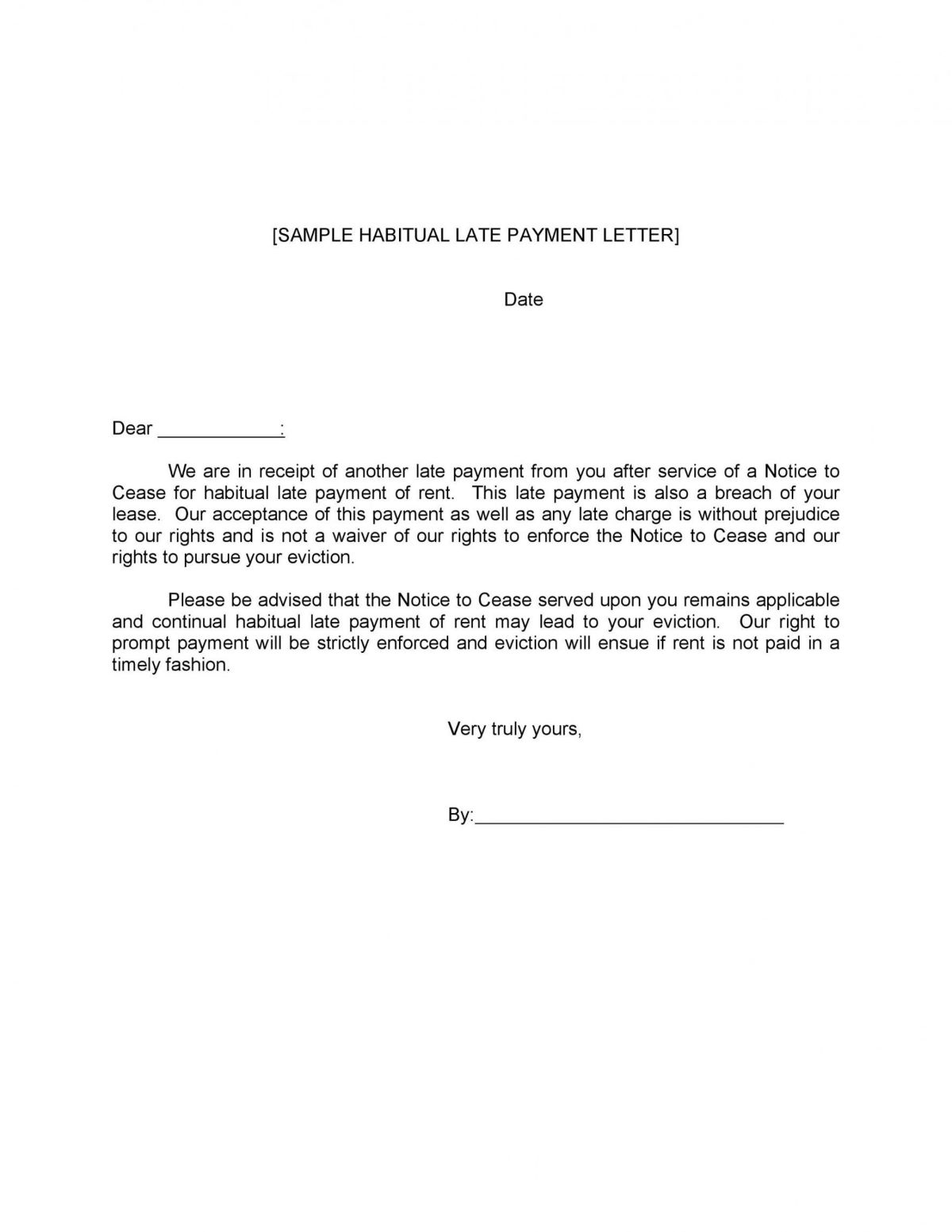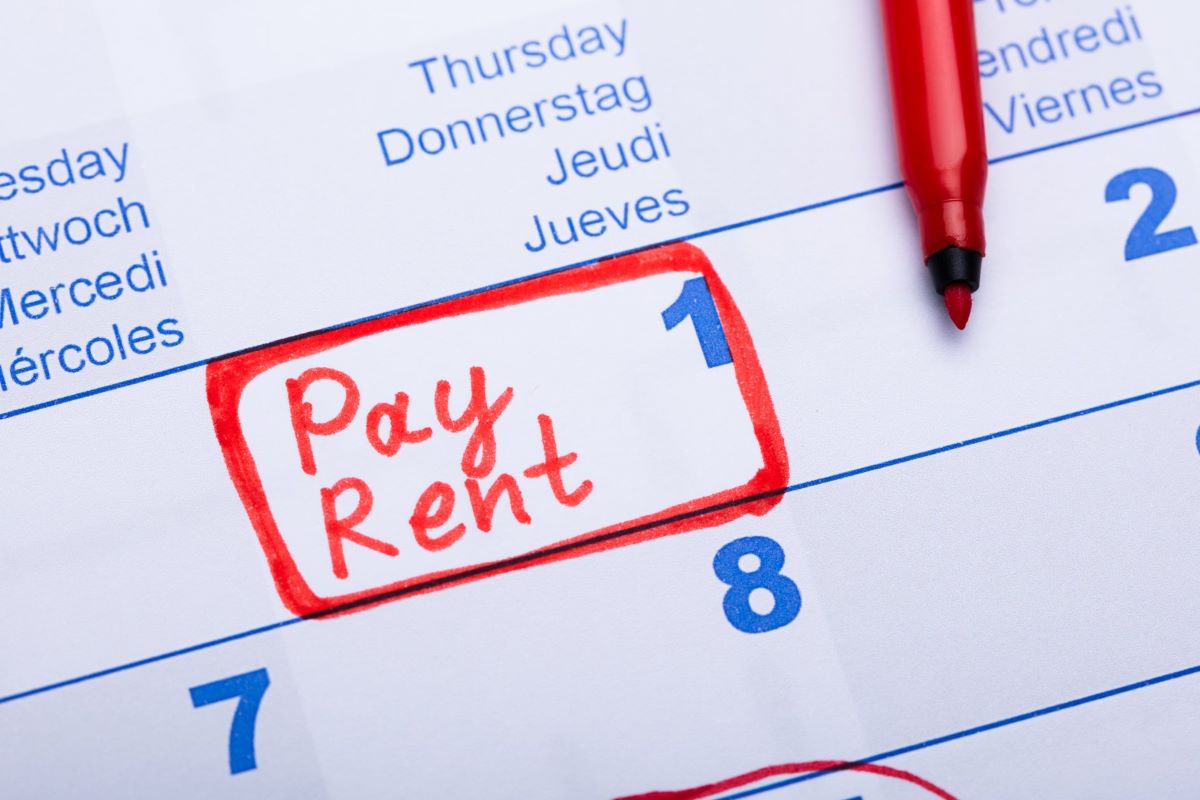

Finance
How To Write For House Rent Late Fee Waiver
Published: February 22, 2024
Learn how to request a waiver for late fees on your house rent. Understand the financial implications and steps to write a convincing waiver request.
(Many of the links in this article redirect to a specific reviewed product. Your purchase of these products through affiliate links helps to generate commission for LiveWell, at no extra cost. Learn more)
Table of Contents
Understanding the Importance of House Rent Late Fee Waiver
Introduction
Paying rent on time is a crucial aspect of maintaining a positive relationship with your landlord and ensuring the smooth running of your living arrangements. However, life is unpredictable, and there may be instances where you find it challenging to make your rent payment by the due date. In such situations, you may be subject to late fees, which can further exacerbate your financial strain.
Late fees are additional charges imposed by landlords when tenants fail to pay their rent on time. These fees can vary depending on the terms outlined in the lease agreement. While it is essential to strive to meet your financial obligations promptly, unforeseen circumstances such as unexpected expenses or temporary financial setbacks can make timely rent payments difficult.
In such cases, seeking a house rent late fee waiver can be a viable option. A late fee waiver is a request made to the landlord to excuse the late fee for a particular month. This request typically involves writing a formal letter that explains the reason for the late payment and requests leniency regarding the associated late fee.
Understanding the process of requesting a house rent late fee waiver and effectively communicating with your landlord can significantly impact the outcome of your request. This article aims to guide you through the process of writing a compelling house rent late fee waiver letter and provides insights into effectively communicating with your landlord to increase the likelihood of a positive response. By understanding the nuances of this process, you can navigate challenging financial situations with confidence and maintain a harmonious relationship with your landlord.
Understanding Late Fees and Waivers
Late fees are charges imposed by landlords when tenants fail to submit their rent payments by the specified due date. These fees serve as a form of compensation for the inconvenience caused by the late payment and are typically outlined in the lease agreement. The amount of late fees can vary, and it is essential to familiarize yourself with the terms specified in your lease.
While late fees are designed to encourage timely payments, unexpected circumstances can occasionally hinder tenants from meeting their financial obligations promptly. In such situations, tenants may opt to request a late fee waiver from their landlord. A late fee waiver is a formal request to excuse the late fee associated with a particular rent payment. Landlords may consider granting a waiver based on the tenant’s circumstances and their history of timely payments.
It is important to note that late fees and the process of obtaining a waiver are subject to the terms outlined in the lease agreement. Therefore, tenants should review their lease to understand the specific provisions related to late payments and waivers. Some leases may include a grace period, allowing tenants to make payments within a specified number of days after the due date without incurring late fees. Understanding these details can empower tenants to navigate the process of requesting a waiver more effectively.
When requesting a late fee waiver, tenants should provide a valid and compelling reason for the late payment. Common reasons may include unexpected medical expenses, temporary financial hardships, or unforeseen delays in receiving income. Communicating these circumstances transparently and respectfully can significantly impact the landlord’s decision regarding the waiver.
By understanding the purpose of late fees, the provisions outlined in the lease agreement, and the process of requesting a waiver, tenants can approach the situation with clarity and confidence. Effectively navigating late fees and waivers requires open communication and a proactive approach to addressing financial challenges while maintaining a positive relationship with the landlord.
Communicating with Your Landlord
Effective communication with your landlord is essential when addressing late rent payments and requesting a fee waiver. Maintaining a transparent and respectful dialogue can significantly influence the outcome of your request. Here are key strategies for communicating with your landlord:
- Timely Notification: If you anticipate a potential delay in your rent payment, it is advisable to inform your landlord as soon as possible. Proactive communication demonstrates responsibility and consideration for the landlord’s expectations.
- Clarity and Honesty: When explaining the reasons for the late payment, be transparent and provide specific details. Whether it’s an unexpected medical expense, temporary job loss, or another valid reason, clarity and honesty can foster understanding and empathy from the landlord.
- Professional Tone: When drafting your late fee waiver request, maintain a professional and courteous tone. Address the landlord respectfully and express gratitude for their consideration. A polite and respectful approach can positively influence the landlord’s perception of your request.
- Offering Assurance: Assure the landlord that the late payment is an isolated occurrence and emphasize your commitment to maintaining timely payments in the future. Providing reassurance can alleviate concerns and demonstrate your dedication to fulfilling your rental obligations.
- Openness to Dialogue: Remain open to discussing the situation with your landlord. If they have questions or require additional information, be receptive to further communication. Open dialogue can facilitate mutual understanding and increase the likelihood of a favorable response.
By approaching your landlord with professionalism, transparency, and a genuine commitment to resolving the situation, you can establish a constructive dialogue that enhances the prospects of obtaining a late fee waiver. Effective communication reflects your reliability as a tenant and underscores your proactive approach to addressing financial challenges.
Writing a House Rent Late Fee Waiver Letter
When composing a house rent late fee waiver letter, it is essential to craft a compelling and respectful document that effectively communicates your circumstances and request. The letter serves as a formal means of requesting leniency regarding the late fee associated with your rent payment. Here are key elements to consider when drafting your late fee waiver letter:
- Clear and Concise Explanation: Begin by clearly explaining the reason for the late payment. Whether it’s a medical emergency, unexpected financial hardship, or a temporary setback, provide a concise and transparent account of the circumstances that led to the delay.
- Expressing Accountability: Acknowledge the late payment and take responsibility for the situation. Demonstrating accountability reflects your integrity as a tenant and emphasizes your commitment to fulfilling your financial obligations.
- Request for Leniency: Respectfully request a waiver for the late fee associated with the specific rent payment. Clearly articulate your request for consideration, expressing gratitude for the landlord’s understanding and flexibility.
- Assurance of Timely Payments: Reassure the landlord of your commitment to maintaining timely rent payments in the future. Emphasize your dedication to upholding the terms of the lease and highlight any measures you have taken to prevent future late payments.
- Polite and Professional Tone: Maintain a polite and professional tone throughout the letter. Address the landlord respectfully and express appreciation for their attention to your request. A courteous approach can positively influence the landlord’s perception of your circumstances.
It is crucial to tailor the content of the letter to your specific situation, ensuring that it conveys sincerity and accountability. By incorporating these elements into your late fee waiver letter, you can present a compelling case for the landlord’s consideration while reinforcing your commitment to maintaining a positive tenant-landlord relationship.
Sample House Rent Late Fee Waiver Letter
Dear [Landlord’s Name],
I hope this letter finds you well. I am writing to address the recent delay in my rent payment for the month of [Month]. Due to unforeseen circumstances, I encountered unexpected medical expenses that temporarily impacted my financial situation, resulting in a delay in submitting the rent payment.
I take full responsibility for the late payment and sincerely apologize for any inconvenience it may have caused. I value our landlord-tenant relationship and strive to uphold the terms of our lease agreement. In light of the situation, I kindly request your consideration in waiving the associated late fee for this particular month.
I want to assure you that this delay is an isolated occurrence, and I am taking proactive measures to prevent any future late payments. I have implemented a revised budget and have taken additional steps to bolster my financial preparedness to ensure timely rent payments moving forward.
Your understanding and flexibility in this matter would be greatly appreciated. I am committed to maintaining the integrity of our lease agreement and upholding my responsibilities as a tenant. I value the positive rapport we have established and am dedicated to ensuring a harmonious tenancy.
Thank you for your attention to this matter, and I am open to discussing the situation further if needed. Your consideration regarding the late fee waiver would alleviate a temporary financial strain and enable me to continue fulfilling my rental obligations diligently.
Respectfully,
[Your Name]
Conclusion
Requesting a house rent late fee waiver involves a thoughtful and proactive approach to effectively communicate with your landlord and navigate financial challenges. Understanding the nuances of late fees and waivers, as well as the process of drafting a compelling waiver request, can empower tenants to address late payments with transparency and accountability.
By proactively notifying your landlord of potential delays, providing a clear and honest account of the circumstances, and expressing a genuine commitment to upholding your rental obligations, you can enhance the likelihood of obtaining a late fee waiver. Effective communication with your landlord is pivotal, as it fosters mutual understanding and underscores your reliability as a tenant.
When crafting a house rent late fee waiver letter, incorporating elements such as a clear explanation of the situation, accountability for the late payment, a respectful request for leniency, and assurance of future timely payments is essential. Tailoring the letter to convey sincerity and professionalism can significantly influence the landlord’s decision regarding the waiver.
Ultimately, the process of requesting a house rent late fee waiver is an opportunity to demonstrate integrity, responsibility, and a proactive approach to resolving financial challenges. By maintaining open communication and addressing late payments with diligence and respect, tenants can navigate these situations while preserving a positive relationship with their landlord.
Through these efforts, tenants can seek understanding and flexibility from their landlords, contributing to a harmonious tenant-landlord relationship and fostering a supportive living environment for all parties involved.














